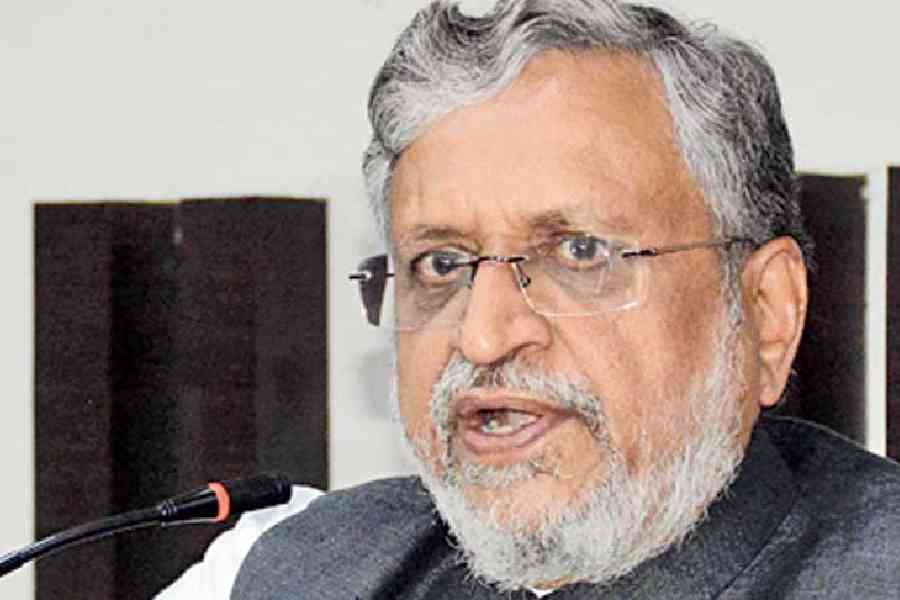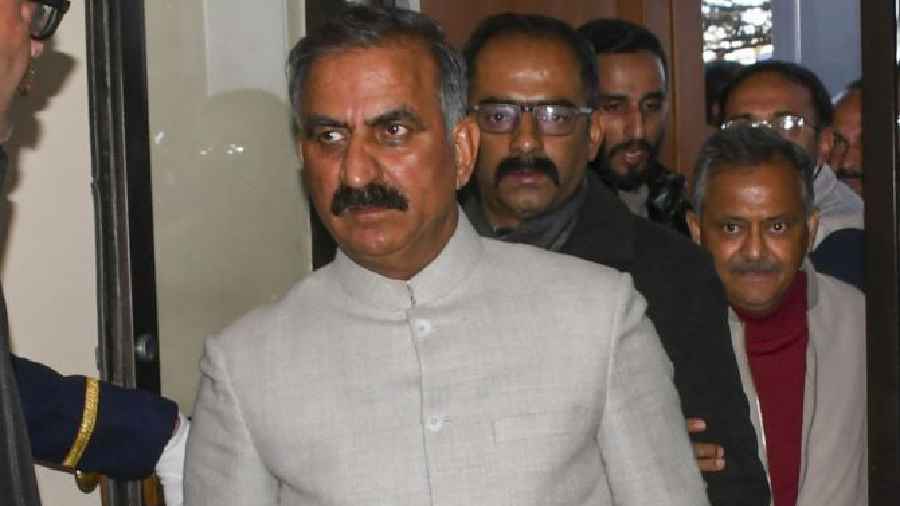BJP parliamentarian and chairman of the parliamentary panel on law, Sushil Modi, on Monday advocated keeping tribals, including those in the Northeast, out of the purview of any likely uniform civil code (UCC), sources said.
The idea was mooted at a meeting where Opposition members questioned the timing of the Law Commission’s move to begin consultations on the contentious issue, the sources said.
Most Opposition members, including those from the Congress and the DMK, linked the push for the UCC to next year’s Lok Sabha polls, the sources said.
The meeting of the parliamentary standing committee, the first after the law panel initiated the consultation process on a common civil code, was held to hear the views of representatives of the panel and the legal affairs and legislative departments of the law ministry.
Last month, the Law Commission issued a public notice inviting views from the various stakeholders on the UCC under the “Review of Personal Laws” subject.
Tribal bodies in Jharkhand have said they will oppose the UCC, arguing that its enactment would dilute their customary laws, The Telegraph had reported on Sunday. The outfits had argued that the UCC would affect the provisions of the Fifth and Sixth Schedules of the Constitution.
The Fifth Schedule deals with the administration and control of Scheduled Areas and Scheduled Tribes in these areas in tribal states, including Jharkhand. The Sixth Schedule contains provisions concerning the administration of tribal areas in Assam, Meghalaya, Tripura and Mizoram.
Sushil Modi pitched for keeping tribals out of the ambit of any proposed UCC and noted that all laws have exceptions, the sources told PTI.
It was also pointed out that central laws are not applicable to some northeastern states without their concurrence.
Prime Minister Narendra Modi had, while pitching for a uniform code, said at a public meeting in Bhopal on June 27: “You tell me, in a house, if there is one law for one family member, and a different one for another member, will that house be able to run? Then how can a country run...?”
According to sources, the Shiv Sena’s Sanjay Raut questioned the timing of the consultations while Congress MP Vivek Tankha and DMK parliamentarian P. Wilson submitted separate written statements asserting that there was no need to have fresh consultations now.
In his letter, Tankha reiterated the view of the previous Law Commission that providing a uniform civil code was “neither necessary nor desirable at this stage”. Questioning the intent behind the move, he linked the law panel decision to the impending elections.
The BJP’s Mahesh Jethmalani made a strong defence of the implementation of the UCC as he cited debates in the Constituent Assembly to assert that it was always considered imperative.
The Law Commission was represented in the meeting by its member-secretary K. Biswal.
In a presentation during the meeting, the Law Commission said 19 lakh suggestions had been received in response to its public notice on June 14. The exercise will continue till July 13.
Sources said 17 of the 31 members of the House panel attended the meeting.
The UCC is aimed at replacing personal laws based on religions, customs and traditions with one common law for everyone irrespective of religion, caste, creed, sexual orientation and gender. Personal laws and laws related to inheritance, adoption and succession are likely to be covered by a common code.
Implementation of a UCC has been part of the BJP’s election manifestos.
Opposition parties had attacked the Prime Minister for his comments on the UCC, with the Congress saying he was only trying to divert attention from real issues such as unemployment and the Manipur violence.
In its consultation paper issued on August 31, 2018, the previous Law Commission headed by Justice B.S. Chauhan (retd) said that while the diversity of Indian culture can and should be celebrated, specific groups or weaker sections of the society must not be “dis-privileged” in the process.
It said the commission dealt with laws that were discriminatory rather than providing a uniform civil code “which is neither necessary nor desirable at this stage”.
The consultation paper noted that most countries are now moving towards recognition of difference, and the mere existence of difference does not imply discrimination but is indicative of a robust democracy.











